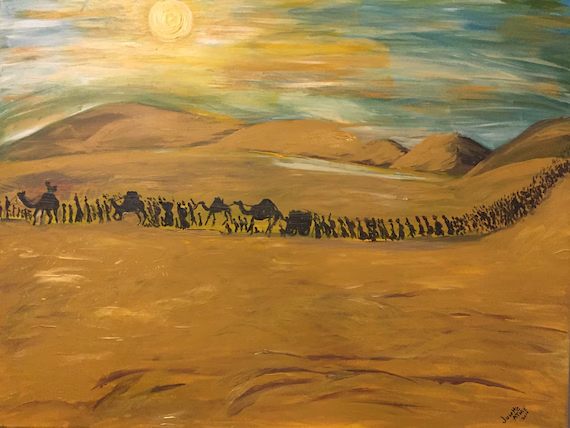The Empty Tomb
Very early on Sunday morning, just before dawn.
Mary Magdalene and two friends went to the tomb to finish the preparations for the burial.
They wondered how they would roll away the huge stone that blocked the entrance.
When the women reached the hillside, they were astonished to see that the stone had been rolled away from the tomb and the soldiers guarding it had gone.
A man in shining white clothes told them. 'Don't be frightened. I know you are looking for Jesus. He's not here.
He is alive.
When the women looked into the tomb, they saw it was empty: the body had gone.
Puzzled and a little frightened, the three women ran to tell the disciples and friends of Jesus.
'They've taken the Lord away, and we don't know where they've laid him, cried Mary.
The disciples didn't believe her: they thought the women must have imagined it.
Especially when you have kids, before their go to sleep and tell them a little story.
Peter and John ran to the tomb to see for themselves, John arrived first but hesitated to go in.
When Peter came, he went straight in and saw that the tomb was empty, but the cloths that Jesus had been wrapped in were lying there.
Peter and John didn't know if the body had been stolen, or if Jesus had really come alive again. Puzzled and anxious, they went quietly home.
Mary Magdalene went back to the tomb by herself. While she knelt, weeping, outside the tomb. Jesus came and stood beside her.
'Why are you weeping?
Who are you looking for? He asked.
Mary didn't look up: she thought it must be a gardener speaking to her; 'I'm weeping because they've taken my Lord away.
Please tell me where he is, she begged.
'Mary, said Jesus.
Mary looked up and saw it was Jesus.
'My Lord, she cried.
Go and tell my friends you've seen me and that soon I'll be with my Father in Heaven, said Jesus.
Full of joy, Mary ran to tell the disciples that she had seen Jesus and that he had spoken to her.












Comments
Post a Comment